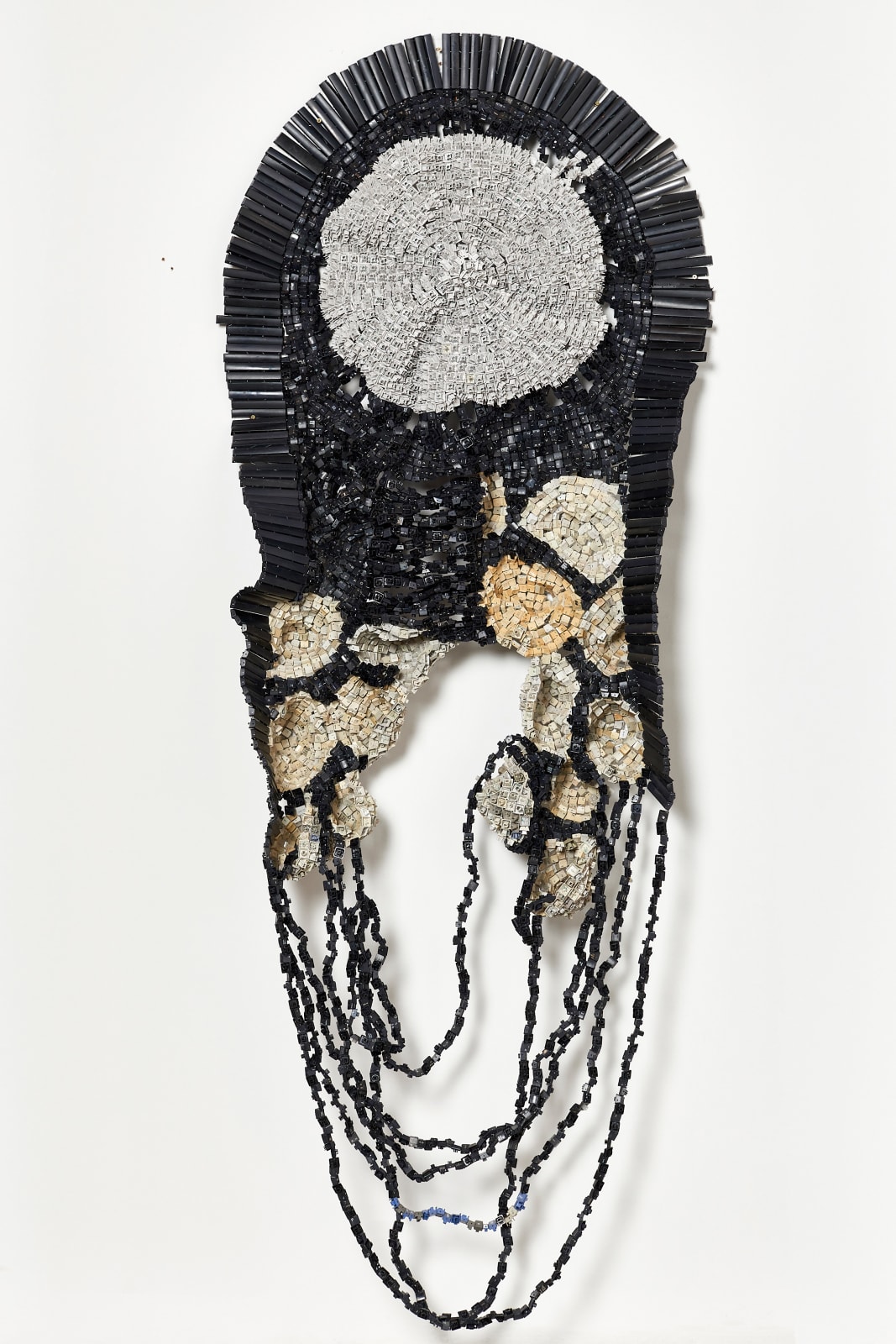
Moffat Takadiwa
Decolonized Accent, 2017
Computer keys
240 x 110 cm
Takadiwa is known for his intricate wall sculptures and installations made from found materials, including spray-can debris, bottle tops and computer keyboard pieces. Takadiwa’s practice engages issues of material culture,...
Takadiwa is known for his intricate wall sculptures and installations made from found materials, including spray-can debris, bottle tops and computer keyboard pieces. Takadiwa’s practice engages issues of material culture, spirituality, colonialism and identity, as well as the environment. The wall sculptures are made from destroyed computer keyboards, through which the artist explores, destroys and finally reconstructs the legacy of this cultural imperialism perpetrated by language. For Takadiwa, language not only carries culture, but also embodies the values by which people perceive their place in the world. Dismantling colonial rule requires not simply the transfer of the instruments of government, but overcoming colonial cultural legacies, including language. The artist takes inspiration from the “Rhodes Must Fall” movement in questioning the validity of Western-oriented education in Africa. In creating the works for Say Hello to English, the artist, with his team of young assistants, destroyed thousands of computer keyboards left over from the colonial administration, an action which mimics the tearing down of statues and burning down of libraries by students demanding the decolonization of academia. Takadiwa then places the keyboards randomly side by side, thereby fabricating his own ‘decolonised’ meaning or language. Takadiwa concludes that colonial histories cannot be entirely destroyed or denied but must instead be used to construct new narratives.
Provenance
Tyburn Gallery
Exhibitions
Tyburn Gallery, London | Say Hello to English | March 2017 - May 2017.Nest, Den Haag, Holland | Language is the Only Homeland | September 2018 - November 2018.
Vestfossen Kunstlaboratorium, Norway. | KUBATANA | May 2019 - September 2019.
Publications
NEST | "Language is the only homeland_" | NEST Museum | September 8, 2018.Ingrid Opstad | "Scan Magazine, Issue 124, May 2019 by Scan Group " | Scan Group | May 2019.
Texts by Osei Bonsu, Nic Cheeseman, Kirstin Jjellegjerde, Lars-Andreas T. Kristiansen and more | "KUBATANA, An Exhibition with Contemporary African Artists" | Vestfossen Kunstlabratorium | 2019.
Kristin Hjellegjerde interviewed by Brendan Bell-Roberts | "KUBATANA" | Art Africa | June 2019.